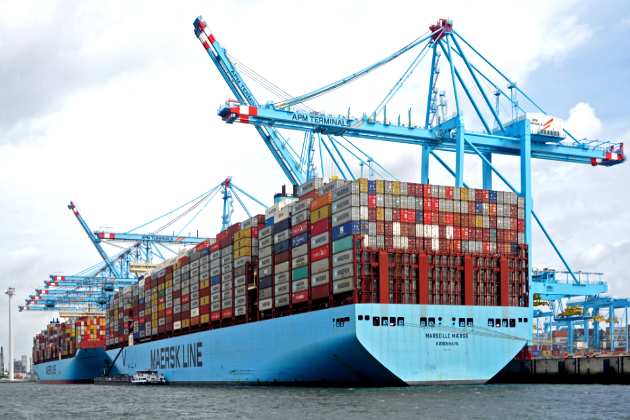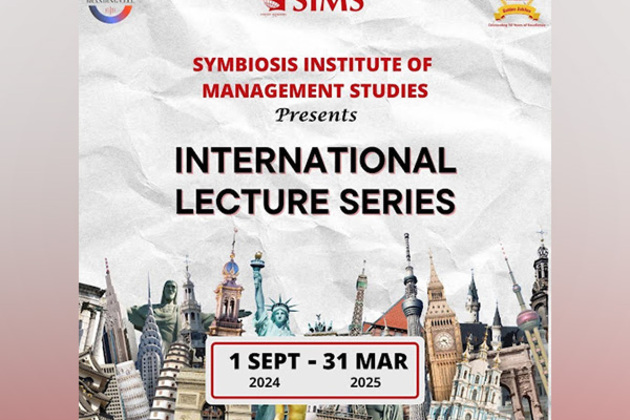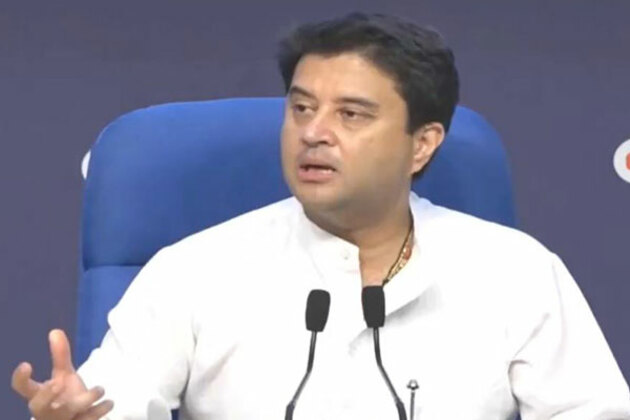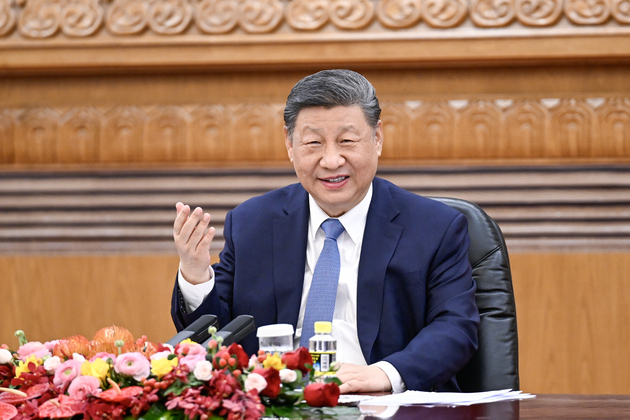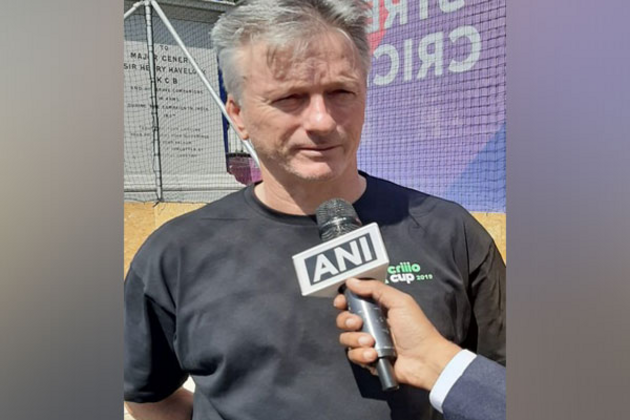The ASIO threat assessment is a dark outlook for Australia's security. Are our laws up to the task?
The Conversation
20 Feb 2025, 02:56 GMT+10

This week, ASIO chief Mike Burgess delivered his sixth Annual Threat Assessment.
His approach this time was unprecedented. Instead of focusing on past and present threats, Burgess declassified parts of ASIO's assessment for the future, warning us about Australia's security outlook to 2030.
Over the next five years, ASIO is expecting "an unprecedented number of challenges, and an unprecedented cumulative level of potential harm", Burgess warned. At the same time, the threat environment will become more diverse.
Espionage and foreign interference are already at extreme levels, but are anticipated to intensify. Sabotage is expected to pose an increasing threat. Politically motivated violence and communal violence will also remain an elevated concern.
What does this mean for our criminal laws? Are they robust enough to protect us from the growing and diversifying threat of espionage, sabotage and foreign interference? Or will they need bolstering?
Espionage, or spying, involves the theft of information. Burgess has warned that both our enemies and our friends will seek to steal information from us.
This includes information about our military capabilities and alliances, such as AUKUS.
Instead of using traditional spies to gather this information, Burgess expects greater use of proxies.
These proxies could be unwittingly involved in the espionage efforts of a foreign country - such as private investigators. Or they could know exactly what they're doing.
Foreign interference involves covertly shaping decision-making to the advantage of a foreign power. Burgess has warned that foreign governments are monitoring, intimidating and coercing Australians and diaspora communities, including engaging in coerced repatriations.
He also expects that foreign interference may be used to undermine community support for AUKUS.
Concerningly, ASIO has disrupted plots by foreign countries to physically harm (or even kill) people living in Australia. This includes activists, journalists and ordinary citizens - all critics of certain foreign governments.
Both espionage and foreign interference will be enabled by advances in technology, including artificial intelligence (AI), deep fakes and large online pools of personal data.
Sabotage involves deliberately destroying or damaging infrastructure.
Russia has been engaging in diverse acts of sabotage in Europe, aiming to erode support for Ukraine and damage cohesion. These attacks include arson against various types of infrastructure (including defence and munitions facilities), jamming civil aviation GPS systems, and disrupting railways.
While Burgess warned that the risk of similar attacks against Australia is increasing (including attacks against infrastructure arising out of AUKUS), cyber-enabled sabotage will be of more concern. At the moment, foreign governments are exploring and exploiting Australia's critical infrastructure networks to map systems and maintain access in the future.
As with espionage, Burgess expects criminal proxies to be used more frequently to engage in sabotage. This includes state-sponsored or state-supported terrorist groups.
With the espionage, sabotage and foreign interference threat growing and diversifying over the next five years, you'd be right to ask whether our criminal laws are robust enough to stand up to the challenge.
For the most part, they are.
All the laws apply to conduct that occurs "in the real world" and online. The laws also apply to any foreign country, including our friends, as well as terrorist organisations.
In addition to foreign countries, the laws apply to conduct on behalf of a foreign country, including where the conduct is directed, funded or supervised by the foreign country or a person acting on its behalf. This means the laws would apply to proxies hired to engage in espionage or sabotage.
Our sabotage laws are broad enough to cover the explorations of critical infrastructure networks currently being undertaken. An act of sabotage does not have to be committed to be an offence under these laws.
Our foreign interference laws would cover coerced repatriations. While plots to harm Australians may also fall within these offences, a number of other offences also exist for harming or killing Australian citizens or residents.
Our espionage, sabotage and foreign interference laws certainly are "world-leading". However, there are some drawbacks.
For example, the laws are yet to grapple with the rise of AI and its use to gather information for espionage or generate mis- or disinformation for foreign interference.
While the laws have broad extraterritorial reach - they apply to conduct that occurs within or outside Australia - the practicalities of enforcing the laws when offenders are located overseas is a big barrier.
But in today's digital age where espionage, sabotage and foreign interference can be conducted online from the safety of a foreign country and therefore beyond the reach of Australia's criminal law, we need more than a robust legal response.
As Burgess stressed, these issues "require whole of government, whole of community, whole of society responses [...] national security is truly national security: everybody's business".
We all need to be aware of the risks and what we - as individuals, employees, researchers and business owners - can do to mitigate them.
 Share
Share
 Tweet
Tweet
 Share
Share
 Flip
Flip
 Email
Email
Watch latest videos
Subscribe and Follow
Get a daily dose of Perth Herald news through our daily email, its complimentary and keeps you fully up to date with world and business news as well.
News RELEASES
Publish news of your business, community or sports group, personnel appointments, major event and more by submitting a news release to Perth Herald.
More InformationInternational Business
SectionIreland’s Central Bank warns of economic risk from US-EU trade dispute
DUBLIN, Ireland: As tensions rise between the United States and the European Union over potential tariffs, Ireland's Central Bank governor...
SIMS Concludes International Lecture Series, Showcasing Global Thought Leadership
SMPL Pune (Maharashtra) [India], March 28: The Symbiosis Institute of Management Studies (SIMS) successfully concluded its prestigious...
Reimagining Chai, Brewing for the Future: HUL's 'Tea Next' initiative to empower small tea growers
Guwahati (Assam) [India], March 28 (ANI): Hindustan Unilever Limited (HUL) launched a new initiative, Tea Next, dedicated to training...
News Analysis: Is Britain's new fiscal plan stable enough to withstand U.S. tariff shock?
Shoppers are seen on Regent Street during Boxing Day sales in London, Britain, on Dec. 26, 2024. (Xinhua/Li Ying) While British Chancellor...
"BSNL rolling out 1 lakh fully indigenous 4G towers under Atmanirbhar Bharat": Union Minister Jyotiraditya Scindia
New Delhi [India], March 28 (ANI): The Bharat Sanchar Nigam Limited (BSNL) is currently rolling out 1,00,000 fully indigenous 4G towers...
CHINA-BEIJING-XI JINPING-INT'L BUSINESS COMMUNITY-REPRESENTATIVES-MEETING (CN)
(250328) -- BEIJING, March 28, 2025 (Xinhua) -- Chinese President Xi Jinping meets with representatives of the international business...
Australia
SectionALP in front ahead of upcoming election, but Coalition gaining ground
SYDNEY, Australia - A recent Roy Morgan survey indicates that if a federal election were held today, the Australian Labor Party (ALP)...
MCA welcomes South Australian Premier Peter Malinauskas as he visits Wankhede Stadium
Mumbai (Maharashtra) [India], March 28 (ANI): The Premier of South Australia, Peter Malinauskas, visited the iconic Wankhede Stadium...
Australia to hold federal election on May 3, PM Albanese urges people to vote for Labor
Canberra [Australia], March 28 (ANI): Australian Prime Minister Anthony Albanese has announced that the federal election will be held...
Former Australian cricketer Steve Waugh appointed to Centre for Australia-India Relations Advisory Board
Canberra [Australia], March 28 (ANI): Former Australian cricketer Steve Waugh has been appointed to the Centre for Australia-India...
Josh Giddey hits miracle shot at buzzer as Bulls edge Lakers
(Photo credit: David Banks-Imagn Images) Josh Giddey buried a miracle shot from beyond halfcourt at the final buzzer as the Chicago...
(SP)SWITZERLAND-ST. MORITZ-FREESTYLE WORLD CHAMPIONSHIPS-MIXED TEAM AERIALS-FINALS
(250328) -- ST. MORITZ, March 28, 2025 (Xinhua) -- Oleksandr Okipniuk of Ukraine competes during the Freestyle Skiing mixed team aerials...

